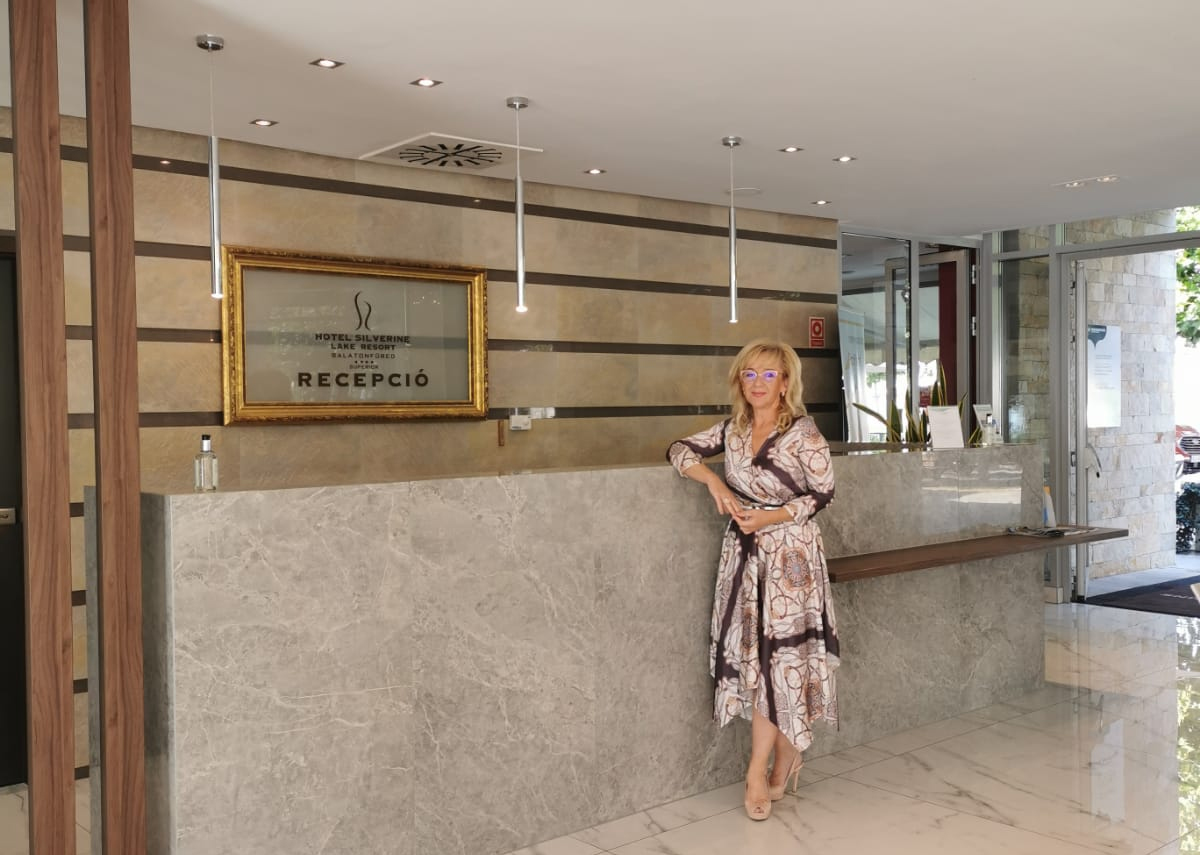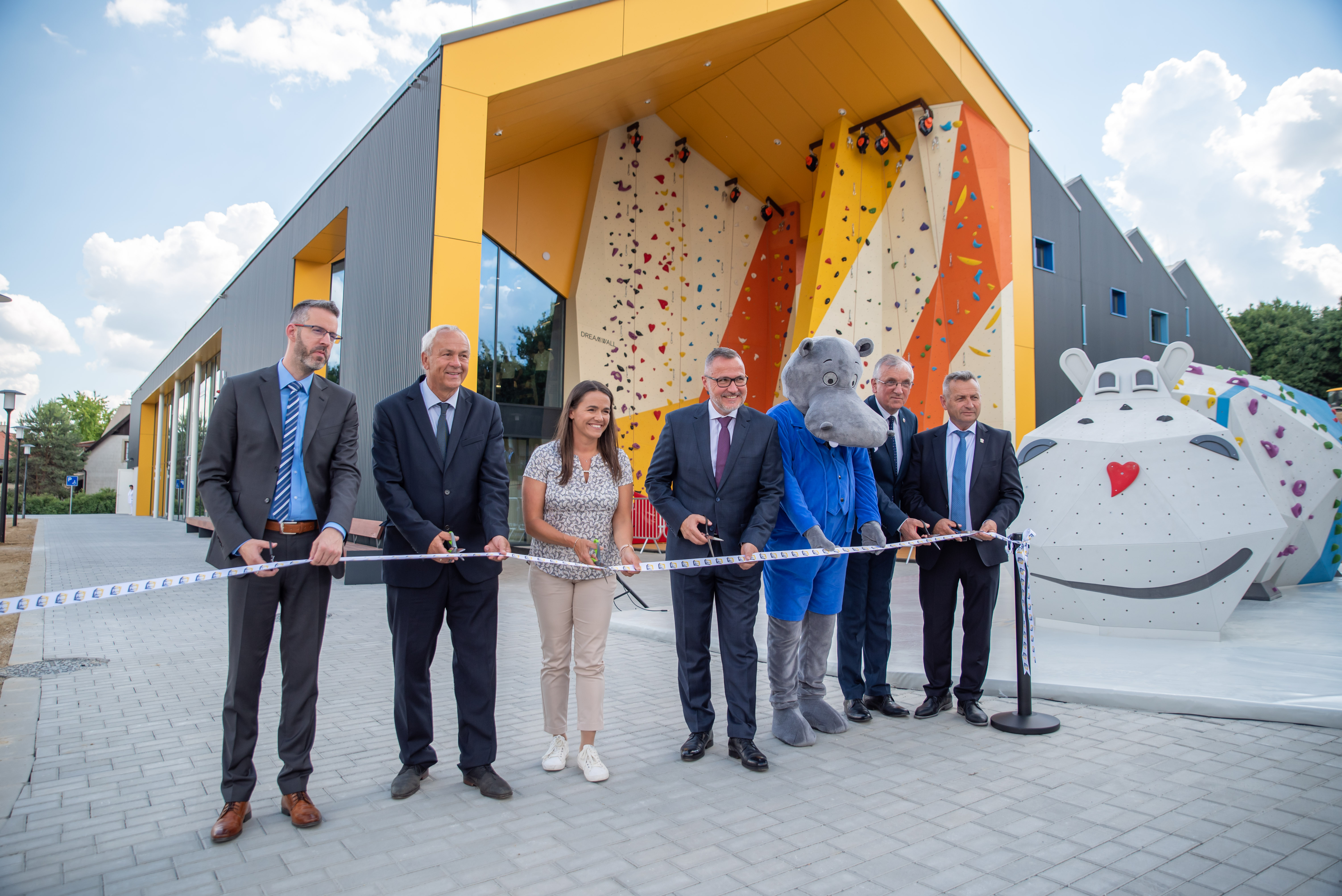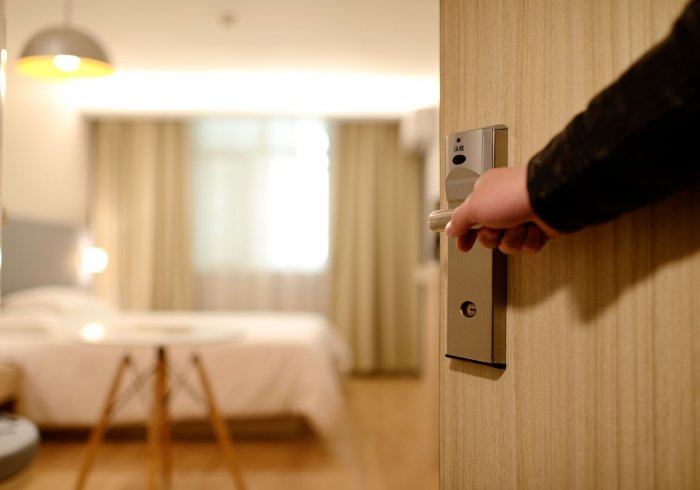Balaton Looks to a Renaissance, but Fast Developments Face Growing Resistance

Balaton accommodation ranges from modest AirBnB rooms in private homes to high-quality hotel and spa treatment centers. Pictured is the four-star Hotel Silverine Lake Resort, in Balatonfüred. Managing director Andrea Rádóczy, who is also chairwoman of the Balaton Region section of the Hungarian Hotels and Restaurant Association, says the recovery of the hotel sector on Balaton appears very dependent on location, with the best sited experiencing strong demand. “For July, inquiries have been more intensive than last year and [for the best located] even more favorable than in 2019,” she says.
It is almost mid-June and one of the first hot days of the summer, and though the tourist season has yet to get into full swing, after the long months of winter lockdown, the many sailing boats make a fine sight on the glistening waters at the northern end of Lake Balaton.
Well to the south, some six kilometers from the western tip of the lake in the village of Alsópáhok, a ceremony is underway to open the Bobo Fun Park. This comprises a 3,000 sqm amusement complex with a dazzling array of games and challenges designed to keep families with children aged from tiny tots to early teens amused for four hours at a stretch and still wanting more.
The project, the result of a HUF 2.1 billion investment, including HUF 946 million in state support, was completed in less than a year, despite the COVID crisis.
Csaba Baldauf, managing director of the park and the adjacent Kolping Hotel, said that similar to his experience in the 2009 financial crisis, he had decided to “step on the gas” to be better equipped to serve the tourist market once the pandemic allowed a reopening.
Moreover, the park represents not merely another attraction for Balaton tourists but an all-weather bolt hole for frazzled parents on those difficult days when the weather turns sour, and the only obvious alternative is to play games inside the hotel room while the rain beats down outside.
“The Bobo Fun Park helps turn Balaton into a four-season offering,” Dóra Kutai, marketing manager for both the park and Kolping Hotel, tells the Budapest Business Journal.

The official opening of the Bobo Fun Park in Alsópáhok, just beyond Keszthely on the western tip of Lake Balaton.
Long-term Growth
The amusement center is just one of scores of developments, including hotel and other accommodation projects and the renewal of lakeside beaches, subsidized by the Hungarian Tourism Agency (MTÜ), which it says will help “guarantee the long-term growth of tourism” in the region.
In total, Lake Balaton has received more than HUF 125 bln (USD 420 mln) in domestic funding since the so-called Kisfaludy Program was begun in 2017. This includes a comprehensive renewal of accommodation infrastructure, including more than HUF 60 bln to develop a total of 49 hotels, MTÜ wrote in response to questions for this article. (See separate box.)
And with the easing of COVID restrictions, hopes are high for a strong recovery in the tourism sector this season, enabling the beginnings of a quick return on these investments.
“A total of 1.3 million nights has been booked in the Lake Balaton region for July-August so far, which accounts for 35% of national overnight stays. Among these, the most popular destinations are Siófok, Balatonfüred, Hévíz, Zalakaros, and Tihany,” the agency said.
Furthermore, with tourism marketing campaigns ratcheting up in key international markets, plus the reopening of Schengen borders, hopes are high for a “sharp increase” in foreign visitors.
“Lake Balaton is experiencing a renaissance today. You can eat better than ever, there are excellent beaches on both shores, the bike path [system] is developing, and we could count until the cows come home how many cool things are happening here today,” says Bobo park’s Kutai.
MTÜ’s Development Plans for Balaton: An Overview
The Hungarian Tourism Agency’s (MTÜ) development plans for Balaton are certainly grand. As noted, the region has received more than HUF 125 billion in state funding since 2017 under the Kisfaludy Program. In addition to a HUF 60 bln-plus program to develop 49 hotels, HUF 4.5 bln has been allocated to renovate 137 guesthouses, with another HUF 18.1 bln earmarked to upgrade a further 5,882 accommodation establishments, MTÜ said.
Simultaneously, the Kisfaludy Beach Development Program is overseeing the renewal of 97 beaches on Balaton’s shores, and the development of several other attractions is also either underway or in the preparation phase.
In terms of transport, the Hévíz-Balaton Airport will operate as a modern, European-level airfield thanks to recent renovation projects.
BAHART, the Balaton Shipping Company, is investing HUF 200 million in overhauls of older vessels and has ordered two new ferries and two catamarans, with construction beginning this year.
MTÜ also stressed that a standardized accommodation rating system covering all types of accommodation in Hungary would be gradually introduced from January 2022, aimed at helping to regain guests’ trust.
Angéla Badzsó
Developments Cause Backlash from Locals, Political Opposition
The speed and scale of development projects around Lake Balaton have attracted much criticism from both local groups and the parliamentary opposition, with allegations ranging from political cronyism and loss of public beaches to rampant environmental damage.
“We want to stop the colonization of Lake Balaton because our children’s future is not for sale,” Bertalan Tóth, Socialist co-president, declared in May, as part of a joint environmental protection initiative, launched in association with the green LMP party.
Speaking for the latter, MP Erzsébet Schmuck pledged that the opposition would restore the environmental protection regulations she said “have been destroyed” by the Fidesz government.
Angéla Badzsó, founding chair of Összefogás a Balatonért (Together For Balaton), an association created to voice the concerns of local communities around the lake, agrees.
While on paper, both the water, immediate shore, and areas around Balaton are given strong environmental protection, this is totally negated once the government declares any project to be of “extaordinary national interest,” which trumps all protection legislation, she tells the BBJ. “It makes a mockery of the law,” she says.
As a result, buildings are going up “all over the lake” on greenfield sites, with the associated destruction of trees, reed beds, and other natural habitats.
Moreover, it is alleged that the rush to build hotels, marinas, and new holiday flats have progressed above the heads of local people, who wake up to find their former public beach has suddenly become a private area for which they have to pay to gain access. At the same time, the new developments are overloading already stretched utilities such as water and sewage systems.
“Tihany [one of Balaton’s most attractive locations] has a permanent population of about 1,200-1,400. They are developing a new residential area which will add at least 1,000 to this number, but the infrastructure doesn’t exist [to handle this increase],” Badzsó cites by way of example. In addition, the influx of money has propelled property prices way beyond the means of most local people.
“Nobody can afford to take out a mortgage for a simple private home when the cheapest price is at least HUF 800,000 per sqm,” she argues.
“Don’t get me wrong: we are not against developments, but this has to be in cooperation with the local people. And a proper environmental impact study should be undertaken before any project is begun. In any normal country, this is what happens. But not here,” she says.
The Hungarian Tourism Agency was asked for comment on these criticisms but failed to respond.
This article was first published in the Budapest Business Journal print issue of July 2, 2021.
SUPPORT THE BUDAPEST BUSINESS JOURNAL
Producing journalism that is worthy of the name is a costly business. For 27 years, the publishers, editors and reporters of the Budapest Business Journal have striven to bring you business news that works, information that you can trust, that is factual, accurate and presented without fear or favor.
Newspaper organizations across the globe have struggled to find a business model that allows them to continue to excel, without compromising their ability to perform. Most recently, some have experimented with the idea of involving their most important stakeholders, their readers.
We would like to offer that same opportunity to our readers. We would like to invite you to help us deliver the quality business journalism you require. Hit our Support the BBJ button and you can choose the how much and how often you send us your contributions.









